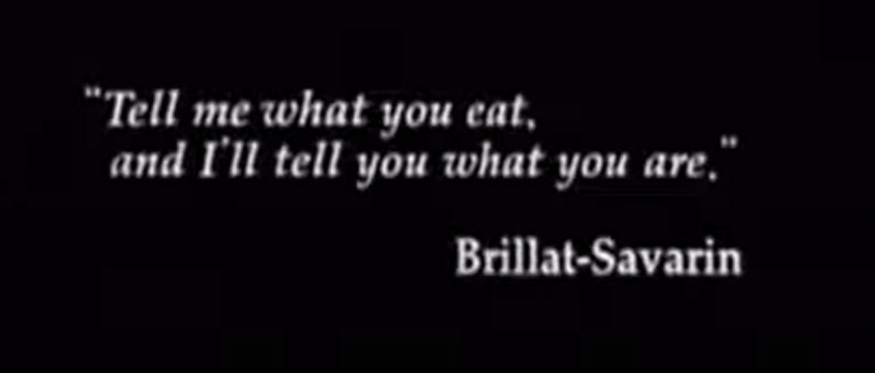How can you write about food at a time like this?
What food writing is to me, and what it allows us to talk about
This week, I conclude my participation in Substack’s Food Writers Intensive, a three-month long program geared toward assisting the development of… well, food writers.
Since the beginning of April, ten other writers and I have participated in regular weekly Zoom discussions, contributed to a private shared newsletter, received coaching from top food writers and consultations with Substack’s writer support team, and received access to a variety of other tools and services.
I really enjoyed the program. I picked up some great tips, strategies and ideas that I think will serve The Action Cookbook Newsletter well as it heads into its fourth year. Above all else, it’s been wonderful to get to know the other ten Food Fellows, a lovely group of writers with a diverse set of backgrounds, focuses, approaches and skillsets. I learned a lot from them (and hopefully they from I), and I’m quite grateful for having been given this opportunity.
There’s only one problem.
[lowers voice to a whisper]
I’m not a food writer.
At least, that’s what I told myself when staring at the application form earlier this year. I found myself debating if I even qualified to enter.
I mean, yes—I write about food here all the time.
That wasn’t why I started the newsletter, mind you. The name is a lucky coincidence, a purposeful non-sequitur when I picked it as a Twitter handle a decade ago, that only came around to being apt years later, but I did get into the habit of writing about food here, sharing recipes and cocktails on a now-weekly basis.
(If you’re new here—and judging by my subscription numbers over the last week, many of you are!—check back on Friday and you’ll see what that’s all about.)
I write about other things too, though.
I’ve never limited my scope in writing this newsletter. You could call it a lack of focus, I suppose, but I pretty much write whatever’s on my mind each week. Often times, this means I’m writing about my experiences—the struggles, joys and everywhere in between—as a parent of two young children. Other times, I’ll write about current events, sports, architecture, running, music—life in general.
For a long time, I thought this was a flaw in my approach.
It was really hard to explain what this newsletter was, to find a consistent through-line or elevator pitch for it.
I’ve come to believe that it actually does make sense, though, as self-serving and post-rationalizing as that might be.
Yes, I’m all over the place—but it’s the food writing binds it all together.
When I’m writing about food, I’m not just writing about breakfast sandwiches or regional chili or spicy pork tenderloins—I’m writing about my life. I’m writing about what’s going on with me at any given moment—whether I’m excited or stressed, ambitious or struggling, curious or in need of comfort. I can scroll back through three years of food writing on here and see glimpses of what was happening in my life at each time throughout.
(There’s definitely some early-pandemic-manic energy going on in some of the recipes I shared in Spring 2020, but dangit, the Cheeseburger Picnic Pie was delicious.)
ME: okay, here you go
BRILLAT-SAVARIN: what the hell man
Yes, sometimes I’m just goofing around, but whether I’m being whimsical or deadly serious, food writing allows me to write about how I’m feeling, what I’m planning, and where I’m going, about creativity and memory and tradition and innovation.
I can write about completely botching a batch of dumplings and finding strange solace in doing so:
Food is the most universal of experiences. We all have to eat, which means we all have opinions on food. Sometimes that devolves into dumb arguments about what goes into chili or what a hot dog is and is not, but it can also be the perfect Trojan horse to kick off discussions of weightier things, as demonstrated by a few selected works I’d like to share from my highly-skilled cohorts from the Food Fellowship.
Coffee can open the door to a discussion of workplace professionalism and the abuse of power inherent in calling employees “family”, as Ashley Rodriguez wrote:
Food and wine pairings can spin off into a thoughtful meditation on our desire to control things we cannot control, as Jason Wilson wrote just this week:
A summer picnic can be the jumping-off point for a look back at an oft-overlooked time and place in American history, as Leah Koenig shares:
Chocolate chip cookies can teach us how history is twisted to tell a story that serves the needs of the narrator more than the subject, as Doug Mack writes:
Cake can allow us to reflect back on the horrors and deprivations of wartime, as Anne Byrn so eloquently shows:
There’s a lot going on in the world right now, and a lot of it is upsetting, scary, or downright infuriating. It might seem frivolous to write about food at a time like this, while we’re looking out the window at a world on fire. I think there’s a genuine value to it, though, one that’s not always easy to appreciate.
Perhaps it’s an ahistorical view to say this, but it seems as though—for as much as we all talk now—we understand each other less than ever. Now, of course, some people—the cruel and the opportunistic, the ones actively looking to harm people and to deny the humanity and liberty of others—aren’t worth trying to understand.
For the rest of us, though—people with more in common than we sometimes realize—we can struggle to see where each other is coming from, what we’re thinking and what we’re trying to say. Food is one small way to build connections that might reveal something deeper in time.
It is a necessity to eat. It is a luxury to eat well.
For me—and for other food writers like me—it is a necessity to write, to help clarify our own thoughts, feelings, desires and beliefs.
It is a luxury to be read, and I thank you for doing so.
—Scott Hines (@actioncookbook)
Do you have a favorite piece of food writing to share? Join the conversation!












CAKE WEATHER FOREVER https://medium.com/s/off-beat/cake-weather-699936ac66b3
my favorite recipe is Julia Child's "Choux de Bruxelles aux Marons" (Brussels Sprouts Braised with Chestnuts) in Mastering the Art of French Cooking. The recipe is literally one sentence...but Pulp Fiction has a more linear timeline and the recipe itself sends you on a "choose your own adventure" to page 450, 451, and 519. I brought it to an office dinner party once and everyone asked me for the recipe, which was had me hooting and hollering.
And, this is my favorite piece of linkable food writing (non-recipe category): https://medium.com/s/off-beat/cake-weather-699936ac66b3